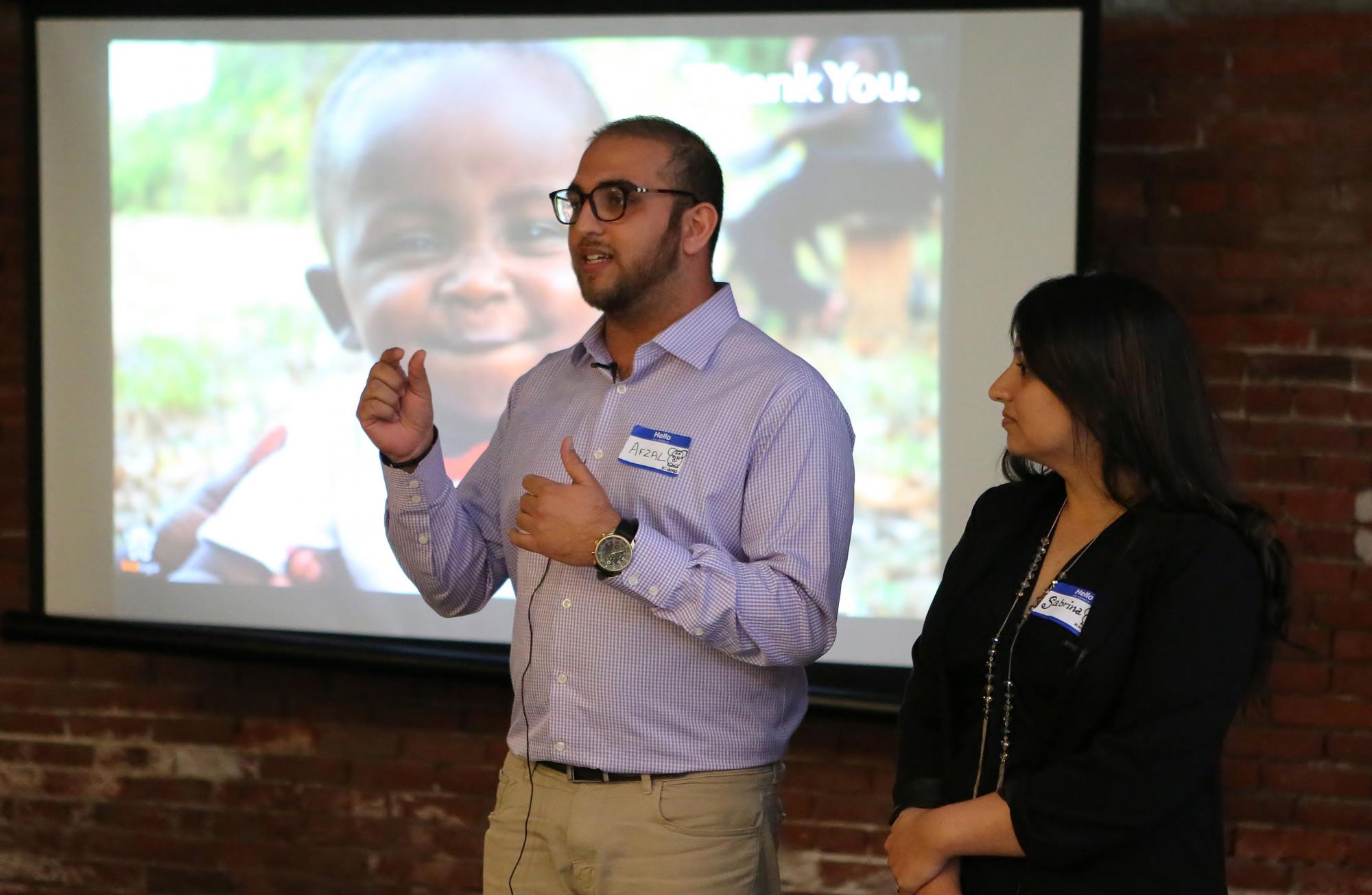EDSi Fellows pitch ideas to change education
 After six months of close collaboration, seven early-stage education companies participating in the Education Design Studio pitched their ideas to educators, investors, and fellow entrepreneurs February 5 at Demo Day.
After six months of close collaboration, seven early-stage education companies participating in the Education Design Studio pitched their ideas to educators, investors, and fellow entrepreneurs February 5 at Demo Day.
The Education Design Studio, Inc. (EDSi) is a $2.1 million hybrid incubator and seed fund built specifically for education ventures. A one-of-a-kind collaboration between Penn GSE and a host of seasoned venture capitalists and investors, EDSi represents a new paradigm for investors, with a model that blends the best elements of an incubator, design studio, seed fund and social impact company. The fund specifically emphasizes the importance of good research for any education business. Penn GSE’s deep involvement in EDSi is part of ongoing entrepreneurial efforts aimed at solving education problems beyond the realm of traditional education research and practice.
Many members of EDSi’s third cohort received invitations to the prestigious incubator after entering last year’s Milken-Penn GSE Education Business Plan Competition. They are all early-stage startups, creating everything from learning platforms to original content, for customers in Philadelphia, across the country, and around the world. Though still getting started, many of the companies have already generated customers and produced revenue, key milestones for startups.
Here are this year’s EDSi Fellows:
Byndr: Colleges and universities in America and throughout the developed world rely on learning management systems (LMS) to allow their students to easily access grades, assignments, and work with fellow students online. Byndr created an LMS for colleges in emerging markets, where an Internet connection is most likely to come through a mobile device. The company has launched in India, where it is currently working with 30 colleges, serving 30,000 students. Byndr’s app is designed to perform well with low-speed Internet connections and allows users to download material to use offline. But it also feels familiar for a new generation of college students. “Byndr is as simple to use as any social media platform today,” said CEO Joseph Freed.
Animat, LLC: Founded by three teachers in 2005, Animat creates tools for teaching foreign language exploratory programs. Prima Linga and Lingua Zone are online tools rooted in discovery and play that have been successfully used in 5th and 6th grade classrooms. Schools in Philadelphia and Loudon County, Va., have used Animat’s tools. Now, the founding teachers are looking to branch out. “We’ve built these products as teachers in the classroom and hopefully the right partner can build it into a business,” said Colin Angevine.
SmartTrack: The average American school loses $10,000 per year between over-ordering and misplaced supplies. SmartTrack hopes to save schools money — and save educators time — with a mobile app that allows users to scan bar codes on supplies and log them into a sortable digital archive. SmartTrack CEO Nate Bronstein said this would cut down on the average 20 hours a year teachers spend on inventory, and make it easier for schools to comply with Federal Title I inventory requirements. “This is about making sure the resources purchased for our kids actually get into their hands,” Bronstein said.
CourseLab: CourseLab is creating a platform that assists academics in building their syllabi. Founders Livia Veneziano and Antre Alleyne said there is a growing demand for this type of platform as lecturers and adjunct professors teach more college courses across different higher education institutions. CourseLab allows professors to connect with other professors, discover content, share elements of their syllabus, and receive feedback from both students and professors on what works and what doesn’t. It also includes templates for building syllabi and a browser plug-in to add online content.
Kidogo: Only 12 percent of children under age six have access to child care services in Kenya’s poorest neighborhoods. Kidogo is a social enterprise providing high-quality early childhood care and education for less than $1-per-day in East, with a goal of breaking the cycle of childhood poverty. After launching their first center in September 2014, Kidogo is now serving 200-250 children per day. The company is also exploring ways to partner with home health care operations — the most common childcare available to poor Kenyans — to significantly improve the quality of care while maintaining low costs.
Project Indus: The world is growing more interconnected, but schools are still struggling to find ways for students to learn from and about one another. Project Indus is building an online platform specifically for classrooms that builds connections between students across the world. On this curated social media platform, students will be able to create a platform, interact directly with one another, and participate in classroom-to-classroom activities. Project Indus also aims to provide intercultural professional development for teachers.
Ironwill Kids: Using nutrition lessons developed at Columbia University and a writing style inspired by children’s television, Ironwill Kids is a program teaching lifelong healthy eating habits. Ironwill Kids writes role-play scenarios that reflect the dilemmas children face when making eating choices. By acting out these scenes, children can practice making better choices. Ironwill Kids also shows kids how to make healthy snacks by staging cooking competitions based on shows like “Chopped.” Ironwill Kids is showing results. Already used by 6,000 children at 110 locations, Ironwill reports that kids who have completed the program drink less soda, eat more fruits and vegetables, and are more likely to read food labels.
